
Self

Director

Director
In June 2015, superstar tenor Jonas Kaufmann walked onto the stage of La Scala in Milan to perform a concert of Puccini arias. The concert made national news in Italy with the audience demanding five encores and a forty minute standing ovation. The film of this legendary performance, Jonas Kaufmann An Evening with Puccini, will be shown nationwide in over 300 movie theaters on February 23, and is available as a DVD and Blu-ray. Directed by Brian Large, the film includes an introduction about Puccini the man, the musician, the superstar narrated by Jonas and featuring rare archive footage. The program features a selection of Puccini s world-famous tenor arias all of which appear on Kaufmann s latest recording, Nessun dorma The Puccini Album.

Director of Photography
With their “comedy for music” in the spirit of Mozart, Richard Strauss and his inspired librettist Hugo von Hofmannsthal created the most popular of all their works and one of the most frequently performed operas of all time. In the guise of a gossamer-light and supremely entertaining high-class comedy, Der Rosenkavalier touches on universal themes such as love, sex, marital fidelity and the changes that human relations undergo over time – and all of it set to music of the most glorious kind imaginable. With its stellar cast under the inspired direction of Harry Kupfer, the 2014 Salzburg Festival’s production of Der Rosenkavalier was one of the most internationally acclaimed interpretations of the work since the start of the new millennium. “A musical feast from beginning to end“ (Wiener Zeitung).

Director
2014 marks a year of celebration recognizing the 150th birthday year of the German late-Romantic orchestral, operatic and lied master composer, Richard Strauss (1864-1949). Arabella (premiered 1933, Dresden) was the last of the half dozen Strauss works to feature a libretto by the great Austrian writer Hugo von Hofmannsthal. This production, from the most recent Salzburg Easter Festival is, after Capriccio, the second of three Richard Strauss operas C Major is releasing in honor of the composers birth, life and work. The star-laden cast includes soprano Renèe Fleming, baritone Thomas Hampson, Albert Dohmen (Covent Garden, Wiener Staatsoper, MET) and Gabriela Beaková (Wiener Staatsoper, Covent Garden). With Christian Thielemann and the Staatskapelle Dresden, the music of Richard Strauss is in the best of hands. (ORF) Thielemann gets the best out of the cast...especially Renée Fleming with her luxurious soprano FAZ

Director
Christian Thielemann conducts the Staatskapelle Dresden in this performance of Wagner's opera recorded live in 2013. The performance was held for the Salzburg Easter Festival and featured vocalists including Johan Botha, Michaela Schuster, Stephen Milling and Wolfgang Koch.

Director
Richard Strauss' last stage work is an opera about opera as an art form, depicting the creation of a music drama in a wise and witty way. Which came first the words or the music? That is the question Strauss and his librettist Clemens Krauss address through the story of a Countess torn between a composer and a poet.
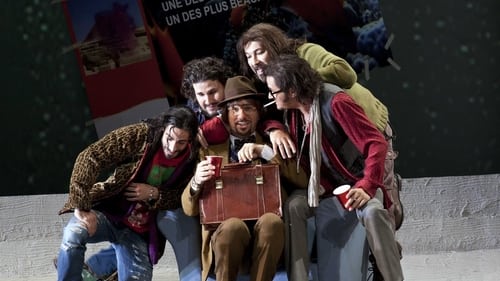
Director of Photography
Live performance of Puccini's opera at the Salzburg Festival in Austria. Piotr Beczala stars as Rodolfo with Anna Netrebko as Mimi, Massimo Cavalletti as Marcello and Nino Machaidze as Musetta. Daniele Gatti conducts the Vienna Philharmonic, the Vienna State Opera Chorus and the Salzburg Festival and Theatre Children's Choir.

Director
Flemings voice might have been made for Ariadne and she achieved a great personal triumph in this production: The chief glory of the evening was hearing Renee Fleming, the Straussian soprano par excellence, making her role debut as Ariadne… As the possessor of what is, possibly, the most beautiful soprano voice in the world, she put her vocal treasures in the service of an empathic, nuanced interpretation of the role. From the creamy top, through a rich, warm middle, to the bewitching, darker colours of her lower register, Fleming poured her magnificent sound into Strausss enchanting melodic arcs, animating the sadness, vulnerability, and desire of the bereft princess...

Director
Christian Thielemann conducts this Staatskapelle Dresden production of Richard Strauss' chamber opera. The opera follows events at the home of the wealthiest man in Vienna, who has booked both a comedy burlesque act and a serious opera group for entertainment. When the dinner runs long he declares that both forms of entertainment must take place at the same time - much to the chagrin of the opera's proud young composer. Filmed live in Baden-Baden on Feb. 25 by the veteran director Brian Large, Renée Fleming makes her debut in the role of Ariadne together with fellow key Strauss interpreters Sophie Koch and Christian Thielemann, following on from their Rosenkavalier triumph. Thielemann conducts the Staatskapelle Dresden, the orchestra to whom Strauss dedicated his Alpine Symphony and which premiered Feuersnot, Salome, Elektra, Der Rosenkavalier and Daphne.
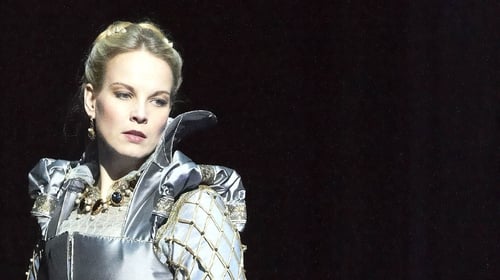
Director
Gaetano Donizetti and his librettist Felice Romani kept the focus of their opera ANNA BOLENA on the personal rather than the political in this fictionalized Tudor tale: Henry VIII of England wants to get rid of his second wife, Anne Boleyn, so that he can marry her lady-in-waiting, Jane Seymour. He brings Lord Richard Percy, Anne's first love, back from exile so that he can find an excuse to accuse her of adultery. With the unwitting aid of Smeaton, a court musician, and Lord Rochefort, Anne's brother, the trap is easily sprung. This 2011 live recording from the Wiener Staatsoper showcases Anna Netrebko as she "scored a personal triumph" in her debut as the hapless Tudor Queen, while her stage partners - notably Elīna Garanča as Jane Seymour and Ildebrando D'Arcangelo as Henry VIII - were likewise showered with critical acclaim.
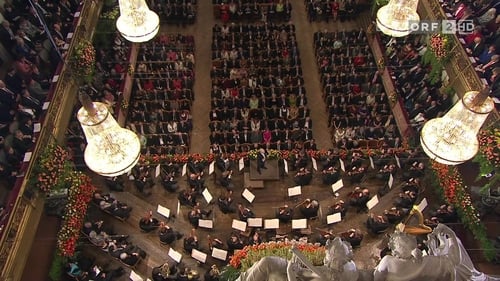
Director
Wiener Philharmoniker, conductor Franz Welser-Most

Director
Stephen Wadsworth’s production of Mussorgsky’s epic masterpiece brilliantly captures the suffering and ambition of the Russian people at a critical time in their nation’s history. René Pape is riveting as the Tsar of the title, giving a commanding and charismatic performance of one of the greatest bass roles in the repertoire—his Boris is dominating, tortured, flawed and utterly unforgettable. The extraordinary cast and the Met Orchestra and Chorus are led by Russian maestro Valery Gergiev, the foremost Mussorgsky interpreter of our time.

Director
After over a century out of the Met’s repertoire, audiences were thrilled to discover just what a sensational evening in the theater Thomas’s Hamlet can be. Simon Keenlyside’s riveting performance as the tortured Prince of Denmark in Patrice Caurier and Moshe Leiser’s starkly brooding production had critics raving that Keenlyside’s superb singing, coupled with his deftly delineated three-dimensional Hamlet, was one of the greatest examples of operatic drama of our time. The cast includes Marlis Petersen as the long suffering Ophélie, who brilliantly shows why her mad scene is so justly famous, along with Jennifer Larmore and James Morris as Gertrude and Claudius.

Director
A world-class pairing, the Los Angeles Philharmonic and their charismatic new Music Director Gustavo Dudamel, mark the start of their partnership with this concert, filmed live at the Walt Disney Concert Hall. The program defines everything that is fresh and exciting about their collaboration: a John Adams world premiere, City Noir, music that steps back into the dark past of Los Angeles, and the allembracing First Symphony by Mahler, the composer who launched Dudamel's dazzling international career. "This was an exceptional and exciting concert by any standard." - The New York Times
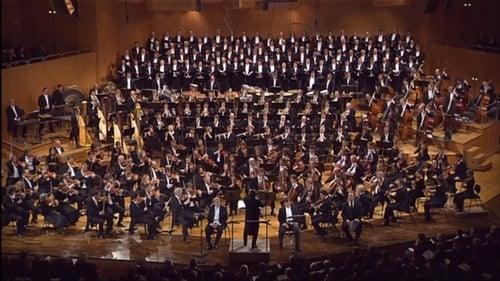
Director
Performance of Schoenberg's Gurrelieder by SBR, conducted by Mariss Jansons

Director
Wolfgang Amadeus Mozart's Don Giovanni is performed live at the Theater an der Wien in this 1999 production starring Carlos Alvarez in the title role and featuring the music of the Choir and Orchester der Weiner Staatsoper performing under the guiding wand of conductor Riccardo Muti.

Director
Live from Munich 2009

Director
Herbert Wernicke's production of Richard Strauss's "Der Rosenkavalier", filmed live at the Festspielhaus Baden-Baden on 31 January 2009. Renée Fleming is the Marschallin, Diana Damrau is Sophie, Sophie Koch is Octavian, Franz Hawlata is Baron Ochs, Franz Grundheber is Faninal, Jane Henschel is Annina, and Jonas Kaufmann is the Italian singer. Christian Thielemann conducts the Münchner Philharmoniker.

Director
This elegant romance is the least-known work of the mature Giacomo Puccini . The story concerns a kept woman who defies convention to chase a dream of romantic love with an earnest, if naïve, young man. This Met Opera production features the dynamic soprano Angela Gheorghiu and Frenchborn tenor Roberto Alagna performing the roles of Magda and Ruggero, it blooms into its rightful place in the glorious Puccini canon. La Rondine (The Swallow) was commissioned by Vienna s Carltheater in 1913. Due to the impending outbreak of World War I, premiered in 1917, at the Opéra de Monte-Carlo with Gilda Dalla Rizza and Tito Schipa. Set in a Parisian salon, it is the story of Magda, the glamorous mistress of wealthy banker Rambaldo. Her yearning for romantic love compels her into the arms of the ardent and adoring young Ruggero.

Director
The ever popular New Year's Concert from Vienna returns in another sparkling performance, broadcast live to over 50 countries! Daniel Barenboim makes his New Year's Concert debut and brings with him a number of works that have never been performed at the concert before. The live concert features popular waltzes, gallops and polkas from the Strauss family including The Blue Danube, The Gypsy Baron March, Thunder and Lightening Polka and much more.

Director
A striking interpretation of Mozart's opera that became a sensation at the 2008 Salzburg Festival. This is not only a rethinking of the place and time of the opera, but also a deep disclosure of the characters' characters, their ambiguous inner world. A simple, at first glance, plot is turned by the creators of the play into a dynamic psychological thriller.

Director
Inspired by one of the twentieth century's greatest novels, composer Lorin Maazel evokes Orwell's totalitarian nightmare, where "Big Brother" is always watching, and those guilty of "thoughtcrime" are condemned to face their worst fears in the infamous "Room 101". Filmed during world premiere performances of Robert Lepage's spectacular and psychologically gripping Royal Opera production and conducted by the composer, an international cast brings George Orwell's dark vision to shattering operatic life.

Director
Richard Wagner's opera Lohengrin staged in 1987 by Werner Herzog in Bayreuth.
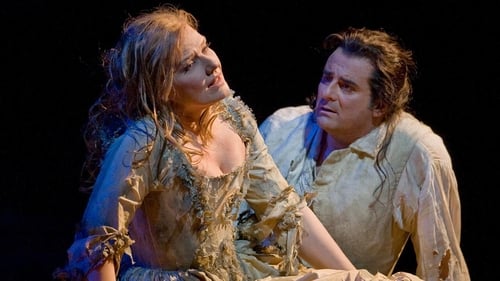
Director
One of today’s most compelling singing actresses, Karita Mattila takes on the irresistible role of Manon Lescaut, the headstrong young woman torn between a life of luxury and the call of her true love: the Chevalier des Grieux, played by Marcello Giordani. The young Puccini lavished some of his most sensual music on this early hit, conducted here by the Met’s beloved James Levine.

Director
Kiri Te Kanawa, Alexandru Agache, Michael Sylvesyer, and Roberto Scandiuzzi star in this Covent Garden production of the Verdi opera conducted by Sir Georg Solti. Verdi's tale of the eponymous medieval Doge of Genoa marries the political and the intimate to dramatic effect, both elements given their full due in this well-sung production led by Sir Georg Solti.

Director
The Wiener Philharmoniker mounts, and Andrea Breth stages, this 2007 production of Pyotr Illych Tchaikovsky's opera Eugene Onegin, starring Peter Mattei, Joseph Kaiser, Anna Samuil and Renée Morloc. The Konzertvereinigung Wiener Staatsopernchor lends added musical accompaniment, under the baton of Daniel Barenboim.

Director
The pain of unrequited love is portrayed unforgettably by two of today’s greatest stars. Renée Fleming is musically and dramatically radiant as the shy Tatiana, who falls in love with the worldly Onegin, played with devastating charisma by Dmitri Hvorostovsky. Their mesmerizing vocalism and chemistry explode in one of opera’s most heartbreaking final scenes. With Valery Gergiev on the podium conducting Tchaikovsky’s passionate score, this performance is one for the ages.
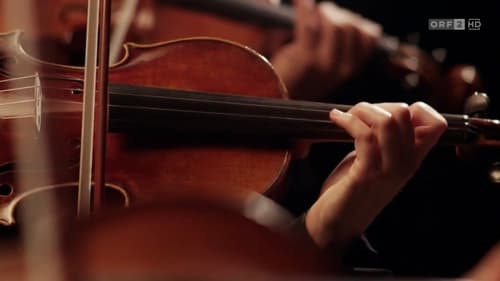
Director

Director
This new production of Bellinis Norma by Jürgen Rose (sets, costumes, stage direction, and lighting) to honor Edita Gruberovas first staged assumption of the title role was taped in January and February of 2006 in Munich. It does neither the opera nor the soprano any favors. In most ways, its a pretty gloomy affair.

Director
The 1791 La Clemenza di Tito (or 'The Clemency of Titus') marked Wolfgang Amadeus Mozart's final opera seria. With a libretto by Metastasio (edited slightly by Caterino Mazzolà), the work dramatizes the palace intrigues surrounding emperor Titus's attempts to coronate a new bride and the envious Vitellia's attempts to have Titus assassinated (with the help of Titus's friend Sextus) following the deposition of Vitellia's emperor father. Stage director Martin Kušej mounted Tito in August 2003, at the Felsenreitschule in Salzburg; a film of that live performance now appears in this home video release. The cast includes Michael Schade as Titus, Vesselina Kasarova as Sextus and Dorothea Roschmann as Vitellia. The Wiener Staatsopernchor, under the baton of Nikolaus Harnoncourt, provides musical accompaniment; Jens Kilian designed the sets.
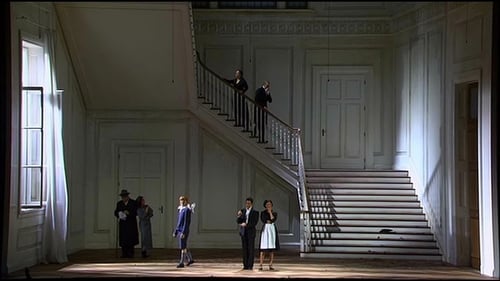
Director
This release contains the celebrated 2006 production of Mozart's Nozze di Figaro that was directed for the stage by Claus Guth at that year's Salzburg Festival. Ildebrando D'Arcangelo takes the title role, and gets support from Anna Netrebko as Sussanna, Bo Skovhus as Il Conte Di Almaviva, and Dorothea Roschmann as La Contessa. Nikolaus Harnoncourt conducts the orchestra.

Director of Photography
The Pierre Audi production of Mozart's "Die Zauberflöte", recorded live at the Salzburger Festpiele in 2006. In honor of the 250th year of the composer's birth, all of Mozart's operas were staged and recorded at Salzburg that year. Christian Gerhaher is Papageno, Genia Kühmeier is Pamina, Paul Groves is Tamino, Diana Damrau is the Königin der Nacht, Irena Bespalovaite is Papagena, and René Pape is Sarastro. Riccardo Muti conducts the Wiener Philharmoniker.

Director
Violetta, a courtesan much wooed by Parisian society, organizes a grand party that is attended, amongst others, by the young Alfredo Germont. He confesses his feelings to Violetta, who is already suffering from consumption. She vacillates between genuine affection and a realistic assessment of her situation as a "fallen woman", which precludes any lasting relationship with a man. The Willy Decker production of La Traviata, recorded live at the Salzburger Festspiele in August, 2005. Anna Netrebko stars as Violetta Valéry, with Rolando Villazón as Alfredo Germont and Thomas Hampson as Giorgio Germont. Carlo Rizzi conducts the Wiener Philharmoniker.

Director
Live from Munich, 2005. London, 1601: love, lust and a death sentence at the English royal court - that's just the mix for great Italian opera. Roberto Devereux - an opera for a sovereign, a work for Edita Gruberová! The prima donna assoluta of bel canto triumphs in this drama. Either an opera house can acquire the services of "la Gruberová" - or they can forget putting on this opera.

Director
Johann Strauss Jr.: Waltzes and Polkas. "The Thunder and Lightning" Polka, with its flashing cymbals and booming bass drum, has always been a favorite in our household. "The Blue Danube" Waltz isn't bad either and "The Radetzky March" (by Johann Sr.) is hard to beat for clap-along fun. Suggested recording: Again, there are many recordings of these works available, but you can't be without the DVD of Carlos Kleiber conducting the Vienna Philharmonic on New Year's Day 1992 on Philips.

Director of Operations
Johann Strauss Jr.: Waltzes and Polkas. "The Thunder and Lightning" Polka, with its flashing cymbals and booming bass drum, has always been a favorite in our household. "The Blue Danube" Waltz isn't bad either and "The Radetzky March" (by Johann Sr.) is hard to beat for clap-along fun. Suggested recording: Again, there are many recordings of these works available, but you can't be without the DVD of Carlos Kleiber conducting the Vienna Philharmonic on New Year's Day 1992 on Philips.

Director
This 2004 production of Richard Strauss's three-act comic opera Der Rosenkavalier (1911) emerged from the efforts of the Grosses Festspielhaus Salzburg. It stars Adrianne Pieczonka as Feldmarschallin, Franz Hawlata as Baron Ochs, Angelika Kirchschlager as Octavian and Franz Grundheber as Faninal. The Konzertvereinigung Wiener Staatsopernchor and the Wiener Philharmoniker lend added musical support, with Rupert Huber serving as chorus master of the former and Semyon Bychkov conducting the latter.

Director
Live from Munich 2004

Director of Photography
Wiener Philharmoniker, director Riccardo Muti

Director
This production of Hans Werner Henze's opera Upupa & Der Triumph der Sohnesliebe features Laura Aiken, John Mark Ainsley, and Alfred Muff in lead roles. Markus Stenz conducts the Wiener Philharmoniker. Live at the Salzburg Festival 2003.

Director
The Vienna Philharmonic's New Year's Concert for 2003.
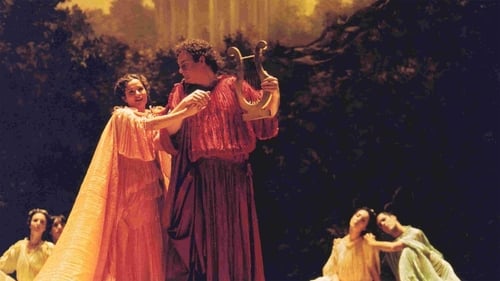
Director
Taped live in Barcelona's Gran Teatre del Liceu on January 31, 2002, this L'Orfeo is both a visual delight and a musically satisfying representation of Monteverdi's opera

Director
The Queen of Spades, Op. 68 (Russian: Пиковая дама, Pikovaya dama, French: Pique Dame) is an opera in 3 acts (7 scenes) by Pyotr Ilyich Tchaikovsky to a Russian libretto by the composer's brother Modest Tchaikovsky, based on a short story of the same name by Alexander Pushkin, but the plot was very changed. The premiere took place in 1890 in St. Petersburg (at the Mariinsky Theatre), Russia.

Director
José Cura, Dmitri Hvorostovsky, Verónica Villarroel and Yvonne Naef lead the star cast of Verdi's blazingly passionate opera IL TROVATORE, in Elijah Moshinsky's new Royal Opera House production co-produced with Teatro Real Madrid, with sets by the noted film designer Dante Ferretti and costumes by Anne Tilby.

Director
James Morris leads an all-star cast including Karita Mattila, Ben Heppner, Thomas Allen and René Pape, in this production of Wagner's comic opera, recorded live at New York's Metropolitan Opera in 2001. James Levine conducts.

Director
Live 2001 production from the Zurich Opera House of the classic Mozart/Da Ponte opera, with Nikolaus Harnoncourt conducting and directed for television and video by Brian Large.
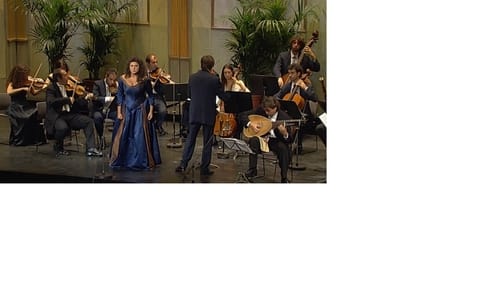
Director
Viva Vivaldi! is a concert by the Italian mezzo-soprano Cecilia Bartoli interspersing arias from the 20 surviving operas of Vivaldi with two concertos. Given with the early music ensemble Il Giardino Armonico before a very appreciative audience in the Théâtre des Champs-Élysées, the performance is part of Bartoli's exploration of the Venetian composer's opera music which also includes The Vivaldi Album. There is a startling dynamic energy, which contrasts powerfully with the more restrained interpretations by singers such as Emma Kirkby. Bartoli's natural Italian and the live atmosphere of Maria Grazia d'Alessio's oboe gives her interpretation of the quietly haunting and melodically rich "Non ti Lusinghi la Crudeltade" from Tito Manlio a particular piquancy. The Flautino Concerto is a most attractive interlude, while the more famous Lute/Violin Concerto beguiles with its exquisite lyricism.

Director
Nabucco - live from Metropolitan Opera, June 2002. On its surface, Nabucco is about the epic struggle of Zaccaria and the Jews suppressed by Babylon’s King Nebuchadnezzar and his vengeful daughter, Abigaille. But to Italians fighting for their freedom from Austria, Verdi’s first great opera was an inspiring call to arms.

Director
This modern interpretation of Georg Frederick Handel's opera focuses on Rinaldo's attempts to break free from enchantress Armida and reunite with his true love, Almirena. In addition to the live performance, the program also includes a Handel documentary, which explores the composer's career and many achievements.

Director
Film recording of Robert Wilson’s stage production of the opera by Gluck. John Eliot Gardiner conducts Berlioz’s 1859 revision of Gluck’s opera “Orphée et Eurydice” at the Théâtre du Châtelet in Paris. Soloists Magdalena Kožená, Madeline Bender and Patricia Petibon are accompanied by Gardiner’s regular chorus, The Monteverdi Choir, and the 19th-century period instruments of the Orchestre Révolutionnaire et Romantique.

Director
Mozart’s allegorical fairy tale has charmed audiences and inspired artists, for more than 200 years. A few weeks before this telecast, the Met unveiled a new production of the opera featuring the colorful designs of acclaimed artist David Hockney. His bold colors and vivid images enchanted audiences and seemed to inspire the striking cast, led by James Levine’s affectionate conducting. Francisco Araiza is the young prince Tamino, who finds himself in a strange land, forced to undergo mysterious tests so he can rescue, then marry, the woman he loves, Pamina, played by Kathleen Battle. Kurt Moll is the compassionate Sarastro and Luciana Serra is the Queen of the Night.

Director
A production of Mozart's opera recorded live at Zurich Opera House in 2000. Cecilia Bartoli leads an all-star cast including Roberto Saccà, Liliana Nikiteanu, and Agnes Baltsa. The conductor is Nikolaus Harnoncourt. Filmed live at the Zurich Opera House in February 2000 on a set which visualises the subtitle "The School for Lovers", the plot revolves around two army officers arguing about the fidelity of their brides, then setting out to test their chastity. Despite the often playful humour, this is not only psychologically telling music-making, but reveals Mozart exploring the structure of opera, discarding convention to mix large ensemble sections with arias for as many different combinations of singers as possible. With Liliana Nikiteanu attractively contrasted with Bartoli, and thoroughly convincing performances by Roberto Sacca (Ferrando) and Oliver Widmer (Guilelmo), this Così has a freshness and flow which, coupled with the timeless romantic themes, feels very contemporary.

Director
When Act 2 of Fidelio is being poured out in the most glorious tones imaginable from Mattila, Heppner and Pape - who can possibly complain? Who would honestly want to replace any of them? Who can fail to be overwhelmed with gratitude to own this disc? If I continue to count our blessings, I might mention the splendid Robert Lloyd drawing us to a thrilling finale as Don Fernando; and Falk Struckmann a convincingly evil Pizarro. So it is certainly not complaining, but fulfilling a reviewer's obligation to tell all, when I admit that Jennifer Welch-Babidge is little more than adequate as Marzelline. One might wish for a purer vocal line in this role - like a Bonney or an Isokoski.

Director
Inspired by Wagner’s own tortured affair with the wife of his patron, this searing masterwork is based on Arthurian legend and tells of an illicit romance between a Breton nobleman and the Irish princess betrothed to his uncle and king. The composer’s larger-than-life sensibilities are on full display throughout the score: Along with intoxicating orchestral music that surges in tandem with the couple’s burgeoning passion and a chord left symbolically unresolved until the last moments of the opera, the opera also features one of the repertory’s most soaring and ecstatic final climaxes, as Isolde surrenders to a love so powerful that she transcends life itself.

Director
The celebrated mezzo-soprano Cecilia Bartoli joins Bryn Terfel for a recital of arias and duets recorded at Glyndebourne Opera House in 1999. The programme features favourite pieces from Mozart, Rossini and Donizetti, with the London Philharmonic Orchestra conducted by Myung-Whun Chung.

Director
Washington National Choir and Orchestra

Director
Elijah Moshinsky's production of Saint-Saëns's "Samson et Dalila", recorded live at the Metropolitan Opera 28 September 1998. Plácido Domingo and Olga Borodina star as Samson and Dalila with Sergei Leiferkus as Grand-prêtre de Dagon, Richard Paul Fink as Abimélech, and René Pape as Un vieillard hébreu. James Levine conducts.

Director
Depicts the consumerism of the mythical city of Mahagonny, conveying all its ripe decadence. A Hollywood Babylon full of pyramidal towers, carved elephants, commodified sex and licensed gluttony. An opera in three acts, live from the Salzburger Festspiele, 1998. Conductor: Dennis Russell Davies. Stage Director: Peter Zadek.

Director
In the awe-inspiring Teatro Olimpico,Vicenza, Cecilia Bartoli, recognised as one of the best singers of our time, gives the most outstanding recital of work from a variety of composers such as Caccini, Schubert, Handel, Vivaldi, Bellini, Donizetti,Mozart, Rossini, Viardot and Bizet.

Director
A timeless tale told in a florid bel canto style, Rossini’s take on the Cinderella story offers an ideal propellant for a virtuosic mezzo-soprano to rocket from rags to riches. But in this retelling, the supporting characters soar just as high: Cinderella’s Prince, her stepfather, and the Prince’s valet are given memorable arias, and the composer rounds out his score with ingenious ensemble flourishes. A vivacious masterpiece, La Cenerentola brings stock fairy tale characters to dazzling life.

Director
Glyndebourne's intimate opera house provides the perfect setting for Rossini's third French opera, a sparkling medieval comedy of lust and chastity.

Director
Valery Gergiev directs the Kirov Opera and Ballet in this dramatic staging of Tchaikovsky's rarely performed historical opera, based on Pushkin's verse tale of the legendary Cossack chieftain.

Director
Princess Fedora, who is to marry the Count the following day, arrives and sings of her love for him, unaware that the dissolute Count has betrayed her with another woman. The sound of sleigh-bells is heard, and the Count is brought in mortally wounded. Doctors and a priest are summoned, and the servants are questioned. It is proposed that Count Loris Ipanov, a suspected Nihilist sympathiser, was probably the assassin. De Siriex (a diplomat), and Grech (a police inspector) plan an investigation. Fedora swears on the jewelled Byzantine cross she is wearing that Count Andrejevich's death will be avenged.

Director
This tribute to James Levine, first shown on PBS, was only part of that glorious evening. Here we have the whole performance, up to three hours. I could not stop watching these discs. Let me say this much; Levine has done for the Met, making it the premier opera house in the world, what Karajan did with the Berlin, making it one of the finest orchestras ever. So sit back and enjoy.

Director
Live performance from the Metropolitan Opera, 27 February, 1996.

Director

Director
Verdi’s monumental score is fully the equal of Shakespeare’s famous tragedy—and both demand great actors. This is one performance where both playwright and composer are well served. Plácido Domingo’s Otello is one of the glories of the operatic world, beautifully sung and so commandingly acted that audiences are devastated by the end. Renée Fleming’s ravishingly beautiful Desdemona is deeply moving, and as Iago, James Morris is as beguiling as he is menacing. Under James Levine’s conducting the Met orchestra and chorus are vital characters in the drama.

Director
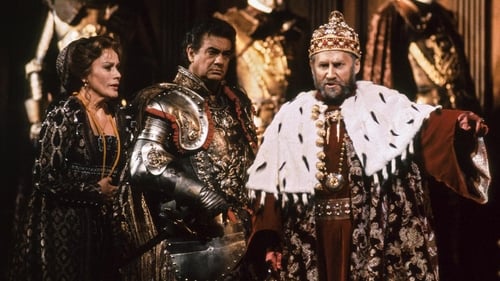
Director
This evocative production by Giancarlo Del Monaco sumptuously captures the look and feel of 14th century Genoa and is a perfect compliment to Verdi’s setting of this story of searing conflict between public duty and private grief. Plácido Domingo is Gabriele Adorno, sworn enemy of the doge of Genoa, Simon Boccanegra (Vladimir Chernov). Gabriele is in love with the beautiful Amelia (Kiri Te Kanawa at her most affecting) who turns out to be none other than the long-lost daughter the doge. James Levine’s authoritative conducting of the Met orchestra and chorus reveals the dark power of Verdi’s score. Performed January 26th, 1995.

Director
Arabella, Op. 79, is a lyric comedy or opera in three acts by Richard Strauss to a German libretto by Hugo von Hofmannsthal, their sixth and last operatic collaboration.

Director
Puccini's Il Tabarro & Leoncavallo's Pagliacci; Pavarotti and Domingo star in MET 1994-1995 season opener.

Director
European Concert 1994 From the Staatstheater Meiningen.

Director
Nikolai Rimsky-Korsakov's dazzling opera by-line in seven tableaux. The epic journey of Sadko a sea-faring minstrel from Novgorod, his wife Libava and their encounters with Volkhova, a sea Princess and the court of her parents the Tsar and Tsarina of the Sea. Sadko traveling on his ship "Falcon" also meets visiting foreign merchants from India (a Hindu), Scandinavia (a Varangian) and Italy (a Venetian) singing of the magic of their own lands to try and lure him. In the seventh tableaux Sadko is reunited with his wife, thinking his journey a dream, until he sees his fleet of ships coming up the newly created river Volkhova and realizes his sea Princess has transformed herself into the river in order to create the gateway to the ocean for Novgorod. In conclusion Sadko leads the hymn of praise and everyone rejoices their good fortune.

Director
The Otto Schenk production of Richard Strauss's "Elektra", filmed live at the Metropolitan Opera in January, 1994. Hildegard Behrens stars as Elektra, with Deborah Voigt as Chrysothemis, Brigitte Fassbaender as Klytämnestra, Donald McIntyre as Orest, and James King as Aegisth. James Levine conducts.

Director
Serge Prokofiev's enigmatic work, this is a tale of the supernatural, religious hysteria and demonic possession which is set in Germany at the time of The Inquisition.

Director
Giuseppe Verdi's opera of religion, revenge and redemption gets the star treatment in this 1993 Metropolitan Opera production conducted by James Levine and starring Plácido Domingo as the cuckolded man of God at the center of the tale. Sharon Sweet sings the role of Domingo's adulteress wife and Vladimir Chernov plays the vengeful father in this rarely staged gem directed by Giancarlo del Monaco and filmed by Brian Large.
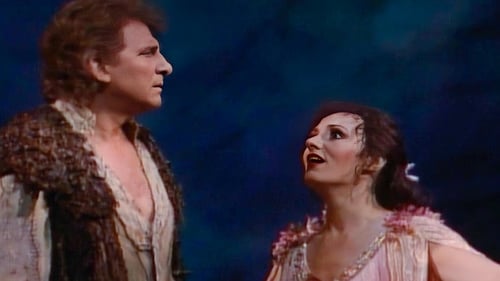
Director
The Met production easily has the most beautiful staging, designed by Otto Schenck, who also produced the fabulous set for the Met's previous Ring cycle. Kurt Moll is a wonderful Gurnemanz, but compared to his studio recording under Karajan a decade earlier it has lost some of its original velvety body and luster. As Parsifal, Jerusalem is starting to show some wear and tear on his voice at the Met in 1992 as opposed to his prime form at Bayreuth in 1981, but is still quite good; only Placido Domingo could compete with him in the role at that time.

Director
It is to composer and librettist Arrigo Boito and his constant pestering of the octogenarian Verdi that there remained within him one last great comedy fighting to get out that we owe this absolute miracle of an opera. Produced in 1893 as Verdi turned 80 there is much in this masterpiece that can be identified as a modernist neoclassical work. The use of short motifs instead of long arioso melodic lines, the spry and reduced orchestral textures and the lack of a single 'stand and deliver' dramatic declamatory aria all serve to make this more of a 20th century work than an example of 19th century late-Romanticism.

Director
The complete version of Verdi's Otello performed by Placido Domingo and Kiri Te Kanawa, at the Royal Opera House, Covent Garden. Gala Performance in honour of Sir Georg Solti's 80th birthday.. 27 October 1992. BBC 2 Television live relay.

Director
Giancarlo Del Monaco’s atmospheric production brings to colorful life a 19th-century mining camp during the California Gold Rush. At the center of the action is the good-hearted bar owner Minnie, sung by Barbara Daniels, who takes a motherly interest in the miners. Plácido Domingo is Dick Johnson, also known as the bandit Ramerrez, who falls in love with Minnie. Sherrill Milnes sings Jack Rance, the sheriff who is not only determined to capture Ramerrez but also wants Minnie for himself. Bloodshed, a crooked poker game, a snowstorm, and a near lynching ensue before Minnie and her bandit-turned-lover can ride off to start a new life. Leonard Slatkin conducts one of Puccini’s most colorful scores.
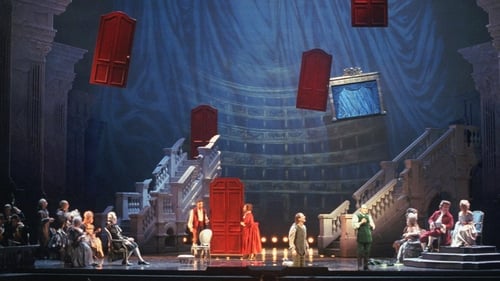
Director
What happened to Figaro and his friends after the events told in Rossini’s and Mozart’s operas? One possible sequel is told in John Corigliano’s “grand opera buffa” The Ghosts of Versailles—an uproariously funny and deeply moving work inspired by Beaumarchais’s third Figaro play, La Mère Coupable, and commissioned by the Met to celebrate its 100th anniversary. This telecast captures its world premiere run, conducted by James Levine. Håkan Hagegård is Beaumarchais, Figaro’s creator, who is deeply in love with Marie Antoinette (Teresa Stratas in a heart-searing performance) and determined to rewrite history and save her from the guillotine. A young Renée Fleming, at the beginning of her international career, sings the unfaithful Rosina. Gino Quilico is the wily Figaro who tries to take matters in his own hands, and Marilyn Horne stops the show as the exotic entertainer Samira.

Director

Director
John Copley’s colorful production, with designs by Beni Montresor, was created around the beloved superstar Luciano Pavarotti. As the simple, good-hearted Nemorino, he enchanted audiences with his larger-than-life personality as well as his golden voice. Enzo Dara as the quack Dr. Dulcamara provides the elixir of the title that helps Nemorino win the heart of Adina, the girl of his dreams, sung with youthful energy by Kathleen Battle.

Director
Verdi's opera performed by the Metropolitan Opera Orchestra and Chorus, conducted by James Levine.

Director
In ancient Babylon, SEMIRAMIDE (Anderson) encourages her lover Assur (Ramey) to murder her husband, King Ninus. Her son, Ninius, disappears, believed dead, and Semiramide rules in her own right. 15 years later, as the opera opens, she is about to announce the name of her successor. Idreno (Olsen) and Assur are the leading candidates for the throne and the hand of Princess Azema (Shin), but Semiramide has taken a fancy to young Arsace (Horne), her victorious military leader who has been summoned back to Babylon. Only the high priest Oroe (Cheek) knows that Arsace is actually Ninius, spirited away to safety after the coup. As the queen announces Arsace as her successor, the ghost of her husband appears from his tomb, demanding that Arsace punish the late king’s murderers... Filmed at New York's Metropolitan Opera, John Copley's production of Rossini's last, longest and most elaborate dramatic opera brings together what many consider the definitive contemporary cast.

Director
"Spirituals in Concert" featuring Jessye Norman and Kathleen Battle.

Director
Verdi - Un ballo in maschera / Domingo · Barstow · Quivar · Jo · Nucci · Rydl · Chaignaud · Wiener Phil. · Solti · Schlesinger · Salzburg Festival 1900
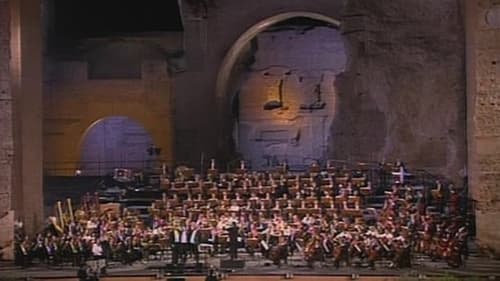
Director
The Three Tenors is a name given to the Spanish singers Plácido Domingo and José Carreras and the Italian singer Luciano Pavarotti who sang in concert under this banner during the 1990s and early 2000s. This is the first collaboration of the trio, with a performance at the ancient Baths of Caracalla, in Rome, Italy, on July 7, 1990 – the eve of the 1990 FIFA World Cup Final. Zubin Mehta conducted the orchestra of Maggio Musicale Fiorentino and the orchestra of Teatro dell'Opera di Roma.

Director
The stupendous climax to Wagner’s four-part Ring cycle is brilliantly realized by the Otto Schenk/Günther Schneider-Siemssen production and byJames Levine’s monumental conducting. The Met orchestra, chorus, and an all-star cast make this Götterdämmerung one that truly rises to the occasion. Hildegard Behrens’s Brünnhilde must be experienced to be believed, as does Matti Salminen’s richly sung, domineering Hagen. At the center of the drama is Siegfried Jerusalem as Siegfried, who does not realize he has been drawn into a plot of betrayal until it is too late. Christa Ludwig is magnetic as Waltraute and Ekkehard Wlaschiha is a compelling Alberich.

Director
From the gorgeous scene deep in the river Rhine that opens the opera, up to the magic Rainbow Bridge that appears at the end, leading to a glistening Valhalla, Otto Schenk’s production captures the scenic world of Wagner’s Ring as brilliantly as James Levine and the Met orchestra capture the musical world. The cast is incomporable: an astounding James Morris as the young god Wotan, the great Christa Ludwig as his wife Fricka, incandescent Siegfried Jerusalem as Loge, the wily god of fire, and Ekkehard Wlaschiha as a complex Alberich.
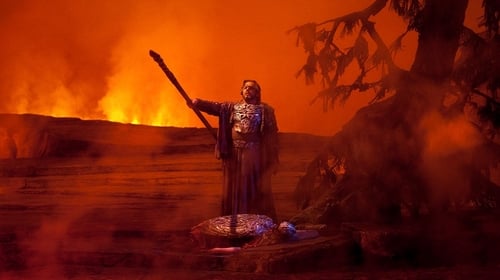
Director
The gorgeous and evocative Otto Schenk/Günther Schneider-Siemssen production continues with this second opera in Wagner’s Ring cycle. Hildegard Behrens brings deep empathy to Brünnhilde, the favorite daughter of the god Wotan (James Morris) who nevertheless defies him. Morris’s portrayal of Wotan is deservedly legendary, as is Christa Ludwig, as Fricka. Jessye Norman and Gary Lakes are Sieglinde and Siegmund, and Kurt Moll is the threatening Hunding. James Levine and the Met orchestra provide astonishing color and drama. (Performed April 8, 1989)

Director
Siegfried is the third of the four operas that constitute Der Ring des Nibelungen (The Ring of the Nibelung), by Richard Wagner.

Director
A filmed concert of two famed sopranos.

Director
Lohengrin is a romantic opera in three acts composed and written by Richard Wagner.

Director
Pharaoh's daughter Amneris loves general Radames, but he loves slave Aida. Aida's father leads the Ethiopian army to invade Egypt. When he's captured, he wants Aida to gain military secrets from Radames.

Director
AIDA, an Ethiopian princess, is captured and brought into slavery in Egypt. A military commander, Radamès, struggles to choose between his love for her and his loyalty to the Pharaoh. To complicate the story further, Radamès is loved by the Pharaoh's daughter Amneris, although he does not return her feelings. Sonja Frisell’s production captures all the grandeur and excitement of Verdi’s monumental opera, particularly the great triumphal scene where the Egyptian army, led by Radamès (Plácido Domingo), returns victorious from war. Aprile Millo is Aida, the slave girl whose love for Radamès has her squaring off with Amneris (Dolora Zajick), the Egyptian princess who also loves him. Sherrill Milnes is Amonasro, and James Levine leads The Metropolitan Opera Orchestra, Chorus, and Ballet.

Director
Francesco Cilea's Adriana Lecouvreur concerns a doomed love based on a real story about an actress involved in a famous love triangle. Mirella Freni sings the title part in this production that was broadcast on television originally in 1989. Gianandrea Gavazzeni conducts the orchestra. Live from La Scala, 1989

Director
Bela Bartok's and Arnold Schoenberg's haunting excursions into the nightmare of the unconscious.

Director
The last and arguably finest opera of Modest Mussorgsky is captured in one of its most powerful interpretations in this 1989 recording from the Vienna State Opera, conducted by Claudio Abbado. A moody opera that is thematically broad at times and intimately personal in others, "Khovanshchina" tells the story of the 17th-century clash between Russian conservatives and Peter the Great's reformists. Among the singers is renowned basso Nicolai Ghiaurov and Paata Burchuladze, as well as Anatoly Kocherga, Ludmila Semtchuk, and Heinz Zednik.

Director
Boito's retelling of Goethe's Faust

Director
Recorded at the Vienna State Opera house in 1989, this staging of Richard Strauss and Hugo von Hofmannsthal’s Elektra is one of the glories of live opera on film, deserving of eternal availability. The DVD picture has great clarity, despite the darkness of Hans Schavernoch’s set design. Other than the cliché of a huge statue head, toppled on its side, the set manages to be suitably representative of a decaying palace as well as an imposing, theatrical space, dominated by the mammoth body of the statue from which the head apparently dropped, draped with the ropes that seem to have enabled the decapitation. Sooner or later most of the characters cling to and twist around those ropes, an apt stage metaphor for the remorseless repercussions from the murder of Agammenon by his unfaithful wife Klytämnestra and her paramour, Aegisthus. Reinhard Heinrich’s costumes capture a distant era while sustaining a creepily modern look — part Goth, part homeless, part Spa-wear.
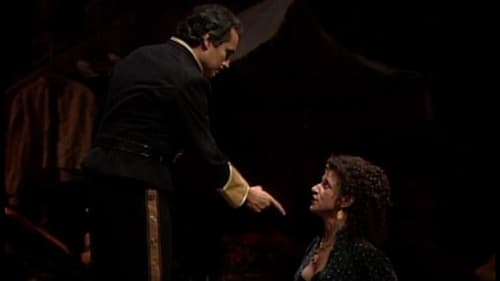
Director
This all-star cast is framed by Peter Hall’s gritty, realistic production and conducted by James Levine, who brings out all the surging emotion and gripping drama in Bizet’s score. At the center of the story is Agnes Baltsa, whose smoky mezzo is tailor-made for the gypsy Carmen, an independent woman who glories in obeying only her own rules, but who is haunted by fate. Superstar tenor José Carreras is Don José, the solider from a small town who catches Carmen’s eye and is destroyed by his growing obsession with her. Samuel Ramey is the charismatic matador Escamillo, who lures Carmen away from Don José with tragic result. Leona Mitchell is Micaëla, the simple girl from Don José’s hometown who cannot save him. March 21, 1987 Matinee Broadcast.
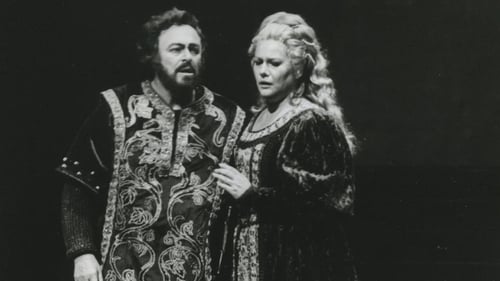
Producer
Luciano Pavarotti brings his spectacular voice and artistry to one of the most famous of all tenor roles—Manrico, the ardent troubadour, trapped in an impossible situation by forces beyond his control. The sensational Dolora Zajick, only days after her Met debut, gives an incandescent performance as the demented gypsy Azucena, thirsting for revenge against Count Di Luna (Sherrill Milnes). Eva Marton is the passionate Leonora, desired by both Manrico and the Count, and James Levine brilliantly leads the Met’s orchestra and chorus in some of Verdi’s best-known music.

Director
Luciano Pavarotti brings his spectacular voice and artistry to one of the most famous of all tenor roles—Manrico, the ardent troubadour, trapped in an impossible situation by forces beyond his control. The sensational Dolora Zajick, only days after her Met debut, gives an incandescent performance as the demented gypsy Azucena, thirsting for revenge against Count Di Luna (Sherrill Milnes). Eva Marton is the passionate Leonora, desired by both Manrico and the Count, and James Levine brilliantly leads the Met’s orchestra and chorus in some of Verdi’s best-known music.

Director
Otto Schenk’s brilliant production captures both the dark romanticism of the story as well as its fairy-tale magic. It is a superb setting for Neil Shicoff’s vivid portrayal of the tortured poet Hoffmann, as he recounts the loves of his life and the way he has been foiled by his nemesis—a marvelous James Morris in a tour-de-force performance of the opera’s four villains. Gwendolyn Bradley is the doll Olympia, Tatiana Troyanos sings the courtesan Giulietta, and Roberta Alexander portrays the innocent Antonia.
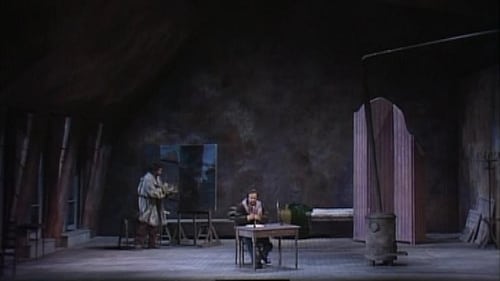
Director
Giacomo Puccini's bittersweet opera of high-spirited bohemians and the doomed love between Rodolfo, the idealistic poet and Mimi, the consumptive flower-maker, is a beautifully balanced series of tableaux depicting the infectious joie de vivre of youth and the tragic waste of disease and separation. The legendary and incomparable partnership of Mirella Freni and Luciano Pavarotti as the two lovers has been captured in this special live recording from stage of the San Francisco Opera. Brian Large has adapted Francesca Zambello's production for video, further illuminating the fascinating interaction of Puccini's characters. Gino Quilico sings Marcello, the colorful and moody painter, whose tempestuous relationship with the flirtatious Musetta (sung by Sandra Pacetti), comically mirrors the more profound love of Rodolfo and Mimi. Nicolai Ghiaurov sings Colline.

Director
Jessye Norman is a regal Ariadne, the mythological Greek heroine in this opera-within-an-opera, opposite the passionate Bacchus of the great James King. Kathleen Battle delivers the coloratura fireworks of Zerbinetta, the leader of a commedia dell’arte troupe that finds itself stranded on Ariadne’s island. Tatiana Troyanos and Franz Ferdinand Nentwig star as the young Composer and the Music Master in the opera’s prologue. James Levine brings out all the color and charm of Strauss’s brilliant chamber-sized score with its equal amounts of pathos and humor. Bodo Igesz’s production features sets by esteemed designer Oliver Messel.

Director
This was a 1988 revival of a 1971 production that teamed Domingo (Vasco da Gama) and Verrett (Selika - both then very much in their prime) in Meyerbeer's discursive swan-song. Seventeen years on, they are more statuesque than sexy, but both give larger-than-life performances that contain moments of completely thrilling vocalism. The casting is very strong, with the exception of Justino Diaz's Nelusko, which has strong presence but not much vocal allure. As Inez, Vasco da Gama's fiancee and rival for Shirley Verrett, Ruth Ann Swneson sings with great beauty and has impressive stage presence, very much holding her own in the confrontation with Verrett in the last act. Domingo is refulgent of tone and dramatically convincing, and he and Verrett strike sparks. She really comes into her own in one of the most preposterous mad-scenes in all opera, where she is slowly poisoned by the scent of a giant tree, contriving to make this dramatically truthful and even moving.

Director

Director
Vladimir Horowitz's piano recital in 1987 at the Musikvereinssaal in Vienna.

Director
1987 recording of Wozzeck by the Vienna State Opera with Claudio Abbado conducting. Based upon Georg Büchner's 1837 play, Alban Berg's Wozzeck details the harsh existence of the title character, a former soldier in the German army who has to struggle mightily to make a living, even as others around him prosper.

Director
A recording of Horowitz's historic 1986 recital in Moscow, the program also includes highlights of his return to his native Soviet Union--his first visit in 61 years.

Director
L'ITALIANA IN ALGERI is an operatic dramma giocoso in two acts by Gioachino Rossini to an Italian libretto by Angelo Anelli. Rossini composed L'italiana in Algeri when he was 21 in either 18 or 27 days, depending on which source one believes (Rossini, not surprisingly, pegged it at 18). It premiered at the Teatro San Benedetto in Venice on 22 May 1813. The music is characteristic of Rossini's style, remarkable for its fusion of sustained, manic energy with elegant, pristine melodies. The plot, in brief: Isabella’s lover Lindoro has been kidnapped, and in her search for him she is shipwrecked and taken captive by Mustafa, Bey of Algiers. To her amazement and delight, she finds Lindoro among the Bey’s prisoners. Isabella hatches a plot that involves flirtation and stealth, and together she and Lindoro escape. Marilyn Horne, Pablo Montarsolo, Douglas Ahistedt, and Allan Monk star in this legendary Metropolitan Opera production conducted by James Levine.
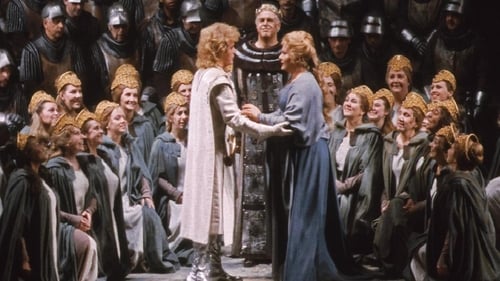
Director
Wagner’s Romantic opera demands singing actors who can truly inhabit their parts, and that’s just what we have here. Is it possible for a Knight of the Holy Grail to look more enticing than Peter Hofmann? No wonder Elsa (Eva Marton) falls in love at first sight. Marton’s heroine is innocent, but she is also a passionate, real-life young woman—which is good, because Leonie Rysanek is positively demented as Ortrud, the sorceress who accuses Elsa and Lohengrin of using magic. With James Levine’s superb conducting, the orchestra and chorus are similarly magical.

Director
Live performance from La Scala in Milan. Nabucco was the first production of the theatre's 1986-87 season.

Director
Performances from Pamela Coburn, Brigitte Fassbaender, Janet Perry, Eberhard Wachter, the Choir und Ballet der Bayerischen Staatsoper, and the Bayerisches Staatsorchester. Rosalinde, wife of Eisenstein, is having an affair with Alfred. Eisenstein is due to begin a prison sentence the next morning, and the prison governor, Frank, is expected to collect him at any moment. However, Eisenstein allows himself to be talked into attending a fancy dress ball by Dr Falke, and when Frank arrives to find Alfred with Rosalinde, he assumes him to be Eisenstein and carts him off to prison.

Director
Wolfgang Sawallisch conducts this acclaimed staging of Paul Hindemith's ambitious opera of the goldsmith Cardillac, whom fortune seems to favor and then abandon, featuring Donald McIntyre and Maria de Francesca-Cavazza in the starring roles. Filmed in 1985 at the Bavarian State Opera and directed by the legendary Jean-Pierre Ponnelle, the production captures every nuance of Hindemith's powerful tale of love, suspicion and betrayal. Opera Performance, recorded at 16-25 September 1985 at the National Theater in Munich.

Director
A 1985 performance of Luchino Visconti's 1958 staging for the Royal Opera House, Covent Garden. Bernard Haitink memorably directs a superb cast that includes Ileana Cotrubas at the height of her powers and Luis Lima, unequalled in his tortured introspection, in the title role. (5-act version, sung in Italian)

Director
tt0253843. Il Trovatore (1985) Verona. Verdi / Italian.
Reynald Giovaninetti conducts the Orchestra of the Arena di Verona in a performance of Verdi's 'Il Trovatore'. The international cast includes Giorgio Zancanaro and Rosalind Plowright. The Count Di Luna believes that his younger brother was murdered years before by a vengeful gypsy, but still hopes that he may be alive. When he attempts to court the beautiful Leonora, he is enraged to discover that she has a lover - the troubadour, Manrico. Manrico and the Count duel, and afterwards Manrico reveals to Azucena, the woman he believes to be his mother, that when he had the opportunity to kill the Count he felt something holding him back.

Director
Live from La Scala Saturday 06 July 1985
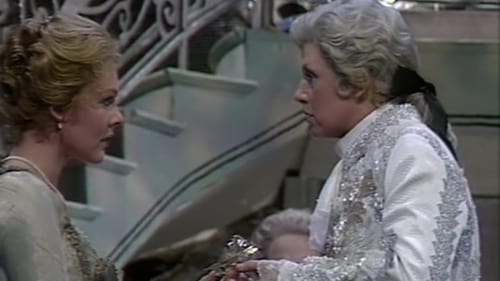
Director
Live performance, new production season 1984-5. BBC 2 Television relay on 30 March 1985 of performance of February 11.

Director
This was one of the most emotional evenings in Met history—the night Leontyne Price bid farewell to opera. Aida is the role that inspired audiences around the world to acclaim her as the greatest Verdi soprano of her time. And this telecast shows why: the famous soaring phrases that seemed to never end, the shimmering top to her lustrous voice, undimmed by the years. But most of all, there is the ennobling heart and soul Price lavished on every performance—captured here forever. With James Levine conducting the Met orchestra, chorus, and ballet.

Director

Director
Live from the Metropolitan Opera: Simon Boccanegra

Director
Live performance at the Metropolitan Opera, 1984. James Levine conducting Metropolitan Opera Orchestra and Chorus. Stage direction by Piero Faggioni.

Director
The American Ballet Theatre, performing at the Metropolitan Opera House, New York City, June 1983, led by Mikhail Baryshnikov, present Cervantes' story about the adventures of the Knight of Rueful Countenance.

Director
Music - Witness three wonderful ballets performed live on stage at the Metropolitan Opera House in New York City. "Sylphides" stars legend Mikhail Baryshnikov, "Sylvia" features a lovely duet and "Paquita" is full of energetic Spanish-style choreography. The American Ballet Theatre performers display their incredible talent and amazing versatility through this beautiful collection of memorable ballets. - Marianna Tcherkassky, Cynthia Harvey, Cheryl Yeager

Director
Set during the Crusades, the story of Lombardi opens with the rivalry of two brothers -- Arvino and Pagano -- who vie with one another for the love of Viclinda. Pagano attempts to kidnap Viclinda and commit a fratricide, extinguishing Arvino, but succeeds only in murdering his father in error; circumstances force him into exile in the Holy Land. Thus begins a complex and harrowing series of events that will ultimately lead to the reconciliation of both men, followed by the death of one.

Director
The sets and costumes by Ponnelle are truly reflective of the 'grand style'. Plus the fact that the two lead characters are portrayed by top singers in their absolute prime - both Gruberova and Araiza weren't even 35 years old at the time of this performance, makes this production the most convincing both dramatically and musically. The conducting of Fischer is good - he makes the music come alive, much more so than the MET version.

Director
Berlioz’s colossal masterpiece requires stupendous forces—dozens of soloists, enormous chorus, orchestra and ballet, a superb conductor who understands the uniqueness of the score—plus a production that does visual justice to the work. “A stupendous achievement” was one critic’s assessment of Peter Wexler’s inventive production. And with James Levine’s wizardry galvanizing the marvelous all-star cast, this is truly a gem. Plácido Domingo is the legendary hero Aeneas, Jessye Norman the obsessed prophetess Cassandra, and Tatiana Troyanos is Queen Dido, who commits suicide when Aeneas leaves her.

Director
Teatro Alla Scala 1983 production of three one-act operas from Puccini.
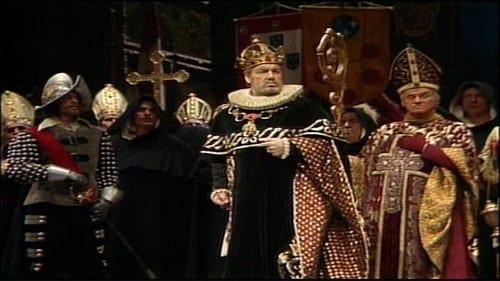
Director
Ghiaurov, Freni, and Bumbry were great voices in their time, and they are still effective here -- good enough musicians to put over the quite heavy vocal and expressive demands of their roles. Louis Quilico was never quite in that league, and he sounds a bit spread and woofy in places here, but he works hard and effectively to bring Rodrigo to life. Placido Domingo recorded his first Don Carlo, for EMI with Giulini, about 15 years before this production, but he looks and sounds fine here -- in the early 1980's he was doing very good Otellos and Lohengrins too, and Furlanetto, still in his 30's, brings a rich, young voice to an old part and succeeds in making the Grand Inquisitor vocally as well as expressively formidable. Levine brings both weight and energy to the score, and that reading fits well with the overall "traditional" design and production -- the Met's wardrobe budget must have been severely taxed, but everybody looks splendid.

Director
In Concert at the Met (DVD) - Highlights Five of the Met's greatest stars - Price, Horne, Troyanos, Domingo, and Milnes - joined James Levine for a series of irresistible concert programs, originally telecast in the 1980s. Featuring works by composers ranging from Handel to Meyerbeer to Puccini and Verdi, these performances include some of opera's favorite moments, delivered by a stunning group of legendary artists. Plàcido Domingo, Tatiana Troyanos (February 28, 1982) Leontyne Price, Marilyn Horne (March 28, 1982) Plàcido Domingo, Sherrill Milnes (January 30, 1983)

Director
"Manon", wrote Puccini to his publisher Giulio Ricordi in 1889, "is a heroine I believe in and therefore she cannot fail to win the heart of the public." This turned out to be a truly prophetic statement since none of Puccinis other world successes were received on their first nights as rapturously as Manon Lescaut. The popularity of Puccinis great masterpiece has never waned and the highly acclaimed Götz Friedrich production at Covent Garden was hailed as an operatic milestone. Two of the worlds leading stars--Kiri Te Kanawa and Placido Domingo--head a strong cast conducted by the brilliant Italian conductor Giuseppe Sinopoli.

Director
From the world famous Arena of Verona, an international cast perform one of Puccini's best loved operas. The cruel Princess Turandot, ruler of China, will only wed a prince who can answer correctly her three riddles. Those who fail are executed. Prince Calaf, son of the exiled king of Tartary, falls in love with Turandot as soon as he sets eyes on her, and despite the protestations of his friends and family sets out to pass her test.
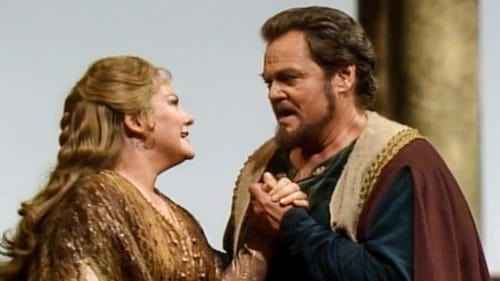
Director
As renowned for its harmonious overture as for its romantic storybook characters, this three-act masterwork features some of the composer’s most groundbreaking and unforgettable music, as well as a theme the young Wagner would revisit again and again later in his career—the redemptive and transcendent power of a woman’s love. The enchanting plot harks back to medieval history: Wolfram is a lovesick troubadour who desires the virtuous Elisabeth. She, however, has eyes for another: the rebellious knight Tannhäuser, who in turn cannot get over an overwhelming sensual experience in the realm of the goddess Venus, and is banished for singing her praises at court. Only saintly Elisabeth’s death can atone for his misdeeds.

Director
Mozart’s “The Magic Flute”

Director
1982 revival of 1974 John Copley production.

Director
This first-rate 1982 production of Verdi’s Falstaff marked the great 20th century Italian maestro Carlo Maria Giulini's return to opera conducting after more than a decade's absence. Renato Bruson leads a brilliant cast as the lovable fat knight Sir John Falstaff, going toe to toe in a series of hijinks with Katia Ricciarelli (Alice Ford) and Brenda Boozer (Meg Page).

Director
tt0255782. Aida (1981) San Francisco. Verdi / Italian. An Egyptian military commander, Radamès, struggles to choose between his love for the enslaved Ethiopian princess Aida, and his loyalty to the Pharaoh. To complicate the story further, the Pharaoh's daughter Amneris is in love with Radamès, although he does not return her feelings.
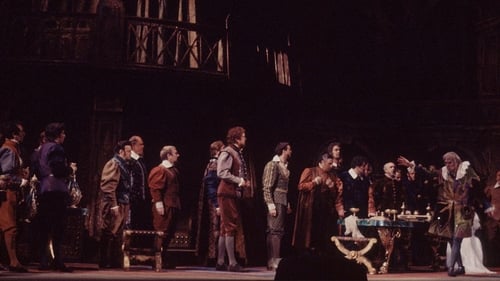
Director
The opera's dramatic structure frames and enhances the characters. Scenes of magnificence regularly alternate with scenes of darkness and squalor. From sumptuous interiors, we move to a dark street, a lonely inn. The secondary figures are astutely counterpoised: the plotting courtiers against the plotting Sparafucile and Maddalena (also ambiguously tender-hearted). When Rigoletto says "Pari siamo", he could be expressing the motto of the whole work: the beautiful and the ugly can be equally good, equally evil.

Director
Seeking to exorcise the failure of his current love affair, the poet Hoffmann tells the tales of his three past loves - the doll-like Olympia, the high-class courtesan Giulietta, and the ambitious but delicate Antonia - and recalls how each was thwarted by the evil influence of his rival. In this production by the distinguished film director, John Schlesinger, with spectacular designs by Maria Bjornson and William Dudley, Offenbach's nightmare world is brought to life. The all-star cast is headed by Placido Domingo as Hoffmann: his three loves are Ileana Cotrubas, Anges Baltsa and Luciana Serra and the manifestations of his rival are sung by Geraint Evans, Robert Lloyd, Siegmund Nimsgern and Nicola Ghiuselev. The score, which includes such favourites as the "Barcarolle" and the "Doll's Song", is conducted by Georges Pretre.

Director
Set during the reign of Nebuchadnezzar (Nabucco), King of Babylon, the opera tells the tale of Nabucco's fictitious daughters, Abigaille and Fenena, who are rivals for the love of Ismaele, nephew of the King of Jerusalem.

Director
tt0262216. Aida (1981) Arena di Verona. Verdi / Italian. Verdi's most famous opera is performed at the Arena of Verona in Italy. Egypt and Ethiopia are at war. Radames is appointed commander of the Egyptian forces by the King, whose daughter, Amneris, loves Radames. It is in fact Amneris' Ethiopian slave Aida whom Radames loves. Ramades wins the war against the Ethiopians, capturing Aida's father Amonasro in the process. On his return to Egypt he faces a choice between marrying Amneris or betraying his country through his love for Aida. This production is conducted by Anton Guadagno and features performances by Maria Chiara, Fiorenza Cossotto and Nicola Martinucci.

Director
James Levine leads a remarkable cast in one of Verdi’s most enduringly popular operas and brings fresh insights to this beloved score. Ileana Cotrubas is poignant and touching as Violetta, the consumptive courtesan who finds true love with Alfredo, sung with style and passion by the great Plácido Domingo. Cornell MacNeil is Germont, Alfredo’s father, who forces the two apart, setting in motion events that lead to a shattering and tragic conclusion. Colin Graham’s production features design by Tanya Moiseiwitsch and choreography by Zachary Solov.

Director
This is a beautifully conducted and thoughtfully staged performance of the first opera (the prologue) in Wagner's Ring Cycle. As soon as the clouds of mist have dissipated, while the daring, long-held opening chord is still reverberating, the screen clears to show not only the River Rhine and the three maidens (dressed like prostitutes in this production) assigned to guard the gold hidden there. It also shows an enormous dam (not mentioned in Wagner's text). This is the underwater base of a hydroelectric plant, and its presence tells us two things immediately: that this production takes the story out of the vaguely medieval fantasy world in which Wagner had placed it, and that a basic theme of the four-opera cycle would be power. Alberich, the Nibelung, is willing to renounce the love of women, after stealing the gold from the Rhine, to become the ruler of the world. Another basic theme is greed.

Director
The second part of Patrice Chérau's epoch-making Bayreuth Ring is a radical re-imagining of Die Walküre, unprecedented in its psychological penetration. This production of " Die Walkure," staged as part of Patrice Chereau's Centenary celebration marking the 100th anniversary of the completion of the "Ring," this lavish performance features Donald McIntyre as Wotan, Peter Hofmann as Siegmund, and Gweneth Jones as Brunnhilde; Pierre Boulez conducts the Orchester Der Bayreuther Festspiel.

Director
The third opera in Richard Wagner's epic Ring cycle, Siegfried follows the adventures of the son of demigods Siegmund and Sieglinde as he conquers his enemies and rescues the beauteous Brunnhilde with the help of his magic sword. This video preserves the controversial 1976 Bayreuth Centenary production, with Pierre Boulez leading the Bayreuth Festival Orchestra. Manfred Jung leads the cast as Siegfried, with Gwyneth Jones as Brunnhilde, Donald McIntyre as the Wanderer, and Hermann Becht as Alberich.

Director
Götterdämmerung, the fourth of Richard Wagner's four Ring operas. The cast features Manfred Jung as Siegfried and Gwyneth Jones as Brünnhilde, with music provided by Bayreuther Festspiele Orchester conducted by Pierre Boulez. This title is available in a boxed set with the other Ring operas, Das Rheingold, Die Walküre, and Siegfried.

Director
Live from the Metropolitan Opera, 14 February 1980. This version takes place in Boston rather than Sweden.
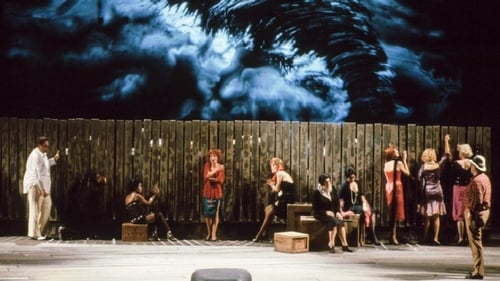
Director
John Dexter’s brilliant production, James Levine’s masterful conducting of the eclectic score, and a sensational cast come together to make this Kurt Weill–Bertolt Brecht masterpiece a riveting evening of music theater. At the center of the action is Jimmy Mahoney (Richard Cassilly), a logger who stumbles onto the city of Mahagonny, where (almost) anything is allowed. Teresa Stratas gives a mesmerizing performance as Jenny, the prostitute who takes up with Jimmy, until he is executed for the greatest of all crimes in Mahagonny—to not have any money. The legendary Astrid Varnay, in her final Met appearances, is Leocadia Begbick, and Cornell MacNeil sings Trinity Moses.

Director
These recordings, filmed in March and April 1974 for the BBC, occurred at the tail end of the old performance era and the very start of the new. Vladimir Ashkenazy was a graduate of the same Soviet school of piano playing that produced Sviatoslav Richter, Emil Gilels, Lazar Berman and a host of others of that era. There are simularities that unite them, including a broad romanticism, a degree of Lisztian showmanship coupled with periods of introspection, powerful technique that occasionally borders on pounding and an intellectual streak that produces some deeply insightful playing. Ashkenazy was younger than the others, more modern in his playing.

Director
This 1969 BBC production is about as close as we can get to a definitive version of Benjamin Britten's PETER GRIMES, one of the greatest 20th Century operas. The story of the individualistic fisherman hounded by his neighbors who believe he murdered his young apprentice packs tremendous emotional power. The compelling narrative is richly enhanced by its subtexts: the lone outsider versus the conformist mob; the dreamer of improbable dreams that lead to tragedy; the artist (dreamer) versus the Philistines, and the homosexual overtones of Grimes' abuse of his child apprentices. Britten is conductor of his work and tenor Peter Pears is Grimes, 25 years after he created the title role at the opera's premiere. As the widow Ellen Orford, soprano Heather Harper is magnificent. Best of all, the sea is an ever-present actor here. When we don't see it in the background it exerts its presence in the abundant visual references to nets, barrels, and other paraphernalia of a seaside fishing village.





























































































































